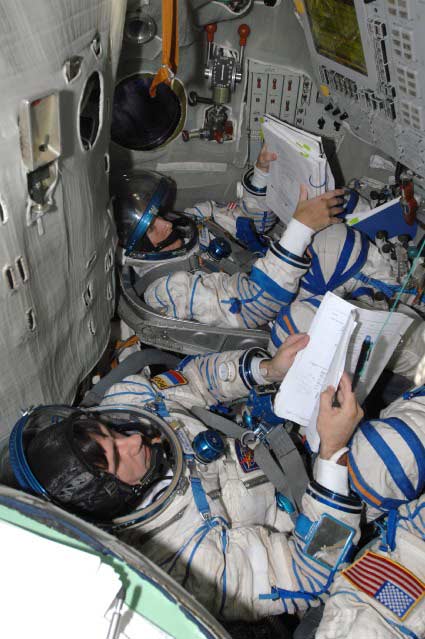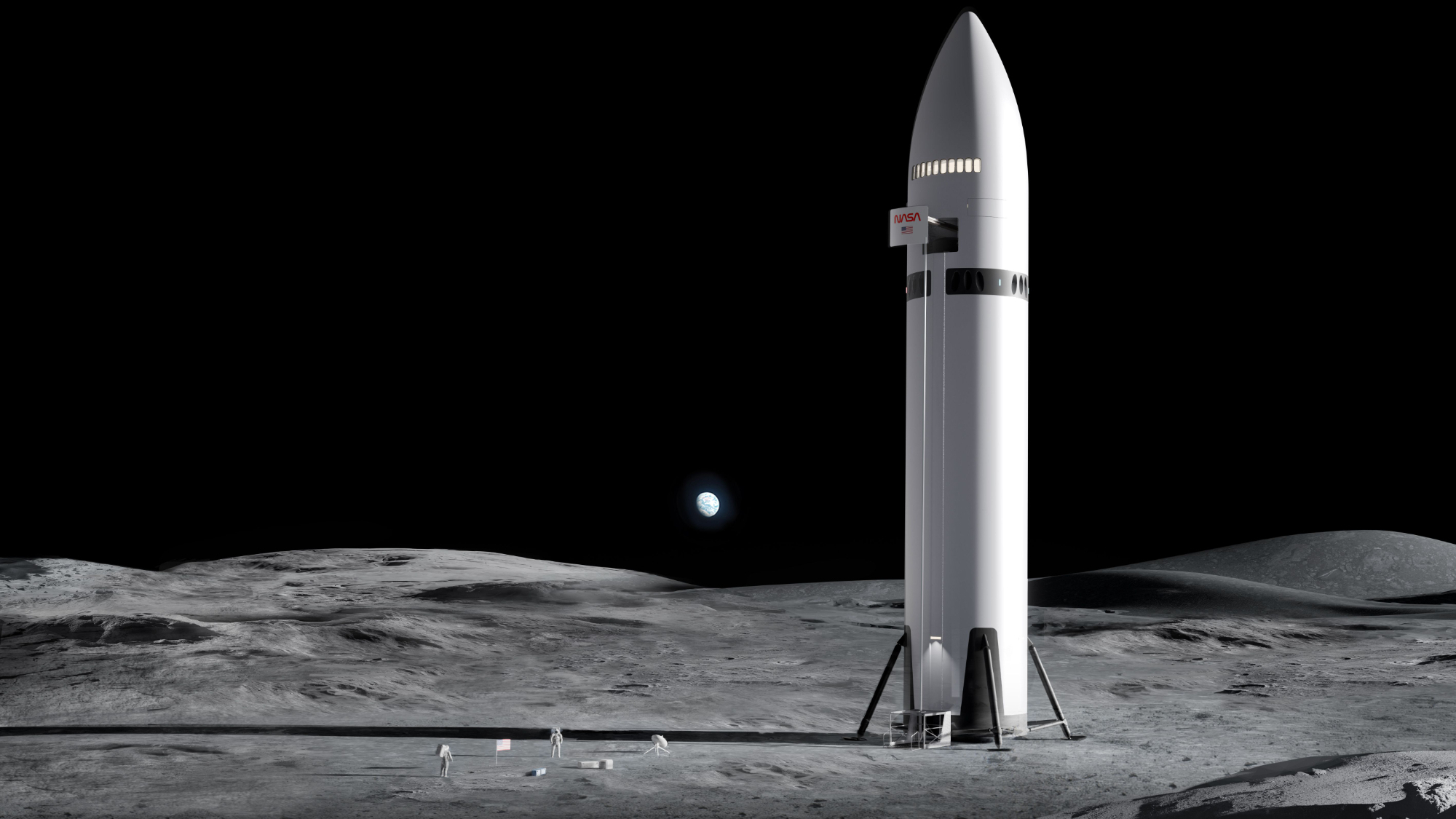Next Space Station Crew, Malaysian Astronaut Ready to Fly

Breaking space news, the latest updates on rocket launches, skywatching events and more!
You are now subscribed
Your newsletter sign-up was successful
Want to add more newsletters?

Delivered daily
Daily Newsletter
Breaking space news, the latest updates on rocket launches, skywatching events and more!

Once a month
Watch This Space
Sign up to our monthly entertainment newsletter to keep up with all our coverage of the latest sci-fi and space movies, tv shows, games and books.

Once a week
Night Sky This Week
Discover this week's must-see night sky events, moon phases, and stunning astrophotos. Sign up for our skywatching newsletter and explore the universe with us!

Twice a month
Strange New Words
Space.com's Sci-Fi Reader's Club. Read a sci-fi short story every month and join a virtual community of fellow science fiction fans!
Two veteranastronauts and Malaysia?s first spaceflyer are poised for a Wednesday launchtoward the International Space Station (ISS) to begin the busy mission of upgradingthe orbital laboratory.
ISSExpedition 16 commanderPeggy Whitson - the first woman to lead a station crew - will rocket intospace alongside cosmonaut Yuri Malenchenko and Malaysian Sheikh MuszapharShukor aboard a Russian-built rocket set to launch at 9:21 a.m. EDT (1321 GMT).Whitson and her crewmates expect to host three visiting space shuttle crews andinstall new ISS modules and laboratory segments during theirsix-month mission.
"It'sgoing to be very aggressive with all the activities going on," Whitsonsaid of the upcoming mission. "And it is going to be challenging."
Whitson andMalenchenko will replace the space station's current Expedition 15 commanderFyodor Yurchikhin and flight engineer Oleg Kotov during a 12-day crew swap.Shukor will return on Oct. 21 with the Expedition 15 crew, but NASA astronautClayton Anderson ? currently serving as an ISS flight engineer ? will stay aboardto join the first stage of Expedition 16.
TheRussian-built Soyuz TMA-11 spacecraft ferrying Shukor and the Expedition 16crew to the ISS will launch from the Central Asian spaceport of BaikonurCosmodrome in Kazakhstan, the same site that launched the world'sfirst artificial satellite - Sputnik - 50 years ago last week.
"Ibelieve we have achieved a considerable progress over such a short timeperiod," Malenchenko said of Sputnik's anniversary. "Currently wehave a continuous presence of humans in space, not only living in space butperforming complicated activities and tasks, performing science experiments,and it has been going on for years."
Firstfemale ISS commander
Breaking space news, the latest updates on rocket launches, skywatching events and more!
Hailingfrom her family's farm in Beaconsfield, Iowa, Whitson is no stranger tolong-duration spaceflight.
As a flightengineer and NASA's firstofficial ISS science officer, she spent 185 days in orbit during theExpedition 5 station flight. But Expedition 16 will mark her first in a newrole as the space station's first female commander.
"Iguess it is a milestone and I guess I'm just the person that happened to be inthe right place at the right time," Whitson told reporters. "I certainlydon't want to be the last female commander of the space station, and I don'tanticipate that to be the case."
Whitson,47, is an accomplished biochemist with a Ph.D. from Rice University and firstjoined NASA as a research biochemist in 1989. By 1992, she served as theproject scientist for the joint Shuttle-Mir program between NASA and Russia'sFederal Space Agency. But it wasn't until 1996 that Whitson finally joinedNASA's astronaut corps and achieved a childhood dream.
"Itreally didn?t become a reality to me to become a goal until I graduated fromhigh school, which was coincidentally the same year they picked the first setof female astronauts," Whitson said in a NASA interview. "I thinkthat was when I decided I wanted to become an astronaut."
Whitsonsaid that, as a scientist, she is eager to see the deliver of the station's newHarmony connecting node later this month, which will serve as an anchor for theEuropean-built Columbus laboratory to arrive in December, Japan's Kibo sciencemodules to launch next year and others.
"Ithink it's a very important stepping stone," Whitson said, adding that thenew modules and equipment will boost the station's ability to perform science.
Cosmonaut?sspace return
LikeWhitson, Malenchenko, too, is a veteran long-duration cosmonaut. But becoming atest cosmonaut and reaching space was not goal the 45-year-old initiallybelieved to be attainable.
"WhenI was growing up almost every boy wanted to be a cosmonaut; every spaceflightwas so unusual and so exciting," Malenchenko said in a NASA interview,adding that life as a military pilot appeared more realistic. "I wasoffered an opportunity to go into the space program and I agreed, and I neverregretted it later."
A native ofSvetlovodsk, Ukraine, Malenchenko attended Kharkov Military Aviation School andjoined Russia's cosmonaut corps in 1987. After graduating from Zhukovsky Air ForceEngineering Academy in 1993, he made his first long-duration spaceflight duringa 126-day mission to Russia's Mir Space Station a year later.
In 2000,Malenchenko helped prime the ISS for human habitation during NASA's STS-106shuttle flight, then took charge of the orbital laboratory in 2003 as commanderof the 185-day Expedition 7 mission. During Expedition 16, he will serve asSoyuz spacecraft commander.
"Youknow, I would like to say that I spent a fair amount of time aboard the spacestation last time," Malenchenko told reporters. "So in a way, itfeels like you are coming home."
Malenchenkosaid he welcomes the frenetic pace of orbital construction ahead for hisExpedition 16 mission. During his Expedition 7, he commanded the station'sfirst two-person crew after the 2003 Columbia shuttle accident.
"Thesituation overall was quite different," Malenchenko said. "Now whatwe are seeing is very active development and assembly of the station."
It isprecisely those new assembly tasks that Malenchenko expects to enjoy, though hedoes hope to look at his home planet from time to time.
"It'salways beautiful to look at the Earth and to photograph it," he said.
Malaysia?s first spaceflyer
Anorthopedic surgeon by training, Shukor will make Malaysian history as the nation'sfirst astronaut, or "angkasawan," during his 12-day orbital trek.
"Tome, it's not just about going into space, even though I have been dreamingabout going into space since I was 10," Shukor told reporters. "Ihope to come back and promote the space program back in Malaysia."
A35-year-old native of Kuala Lumpur, Shukor and backup spaceflyer Faiz Khaleed,a dental surgeon with the Royal Malaysian Armed Forces, were chosen from about11,000 applicants to become Malaysia's first astronaut.
During hisspaceflight, Shukor plans to perform a series of research and physiologicalexperiments for Malaysia and the European Space Agency. He is also totingcultural items and foods to the ISS that he hopes will spur interest in spaceand science among Malaysia's youth.
Shukor, whois Muslim, will also be in orbit during the final days of the holy month ofRamadan, though Malaysian officials have said he won't have to fast while inspace.
?I promiseto make Malaysia proud,? Shukor wrote Tuesday on a Malaysian Web site where heis chronicling his flight. ?That?s a promise I intend to keep!?
- VIDEO: Peggy Whitson, ISS Expedition 5 Flight Engineer
- Looking Back on 50 Years of Spaceflight
- Complete ISS Expedition Coverage

Tariq is the award-winning Editor-in-Chief of Space.com and joined the team in 2001. He covers human spaceflight, as well as skywatching and entertainment. He became Space.com's Editor-in-Chief in 2019. Before joining Space.com, Tariq was a staff reporter for The Los Angeles Times covering education and city beats in La Habra, Fullerton and Huntington Beach. He's a recipient of the 2022 Harry Kolcum Award for excellence in space reporting and the 2025 Space Pioneer Award from the National Space Society. He is an Eagle Scout and Space Camp alum with journalism degrees from the USC and NYU. You can find Tariq at Space.com and as the co-host to the This Week In Space podcast on the TWiT network. To see his latest project, you can follow Tariq on Twitter @tariqjmalik.
